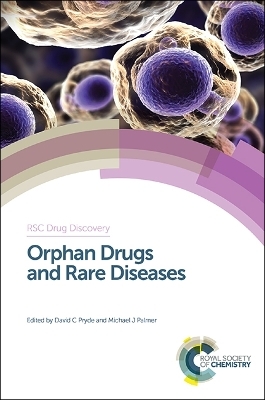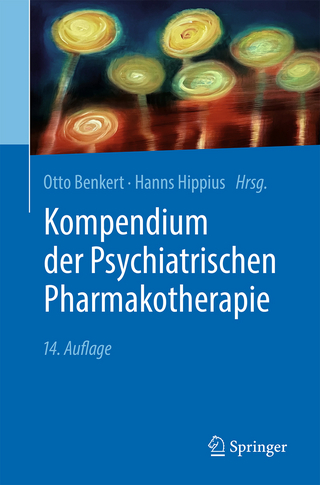
Orphan Drugs and Rare Diseases
Royal Society of Chemistry (Verlag)
978-1-84973-806-4 (ISBN)
Orphan drugs are designated drug substances that are intended to treat rare or ‘orphan’ diseases. More than 7000 rare diseases are known that collectively affect some 6-7% of the developed world’s population; however, individually, any single, rare disease may only affect a handful of people making them commercially unattractive for the biopharmaceutical industry to target.
Ground breaking legislation, starting with the Orphan Drug Act that was passed in the US in 1983 to provide financial incentives for companies to develop orphan drugs, has sparked ever increasing interest from biopharmaceutical companies to tackle rare diseases. These developments have made rare diseases, and the orphan drugs that treat them, sufficiently attractive to pharmaceutical development and many pharmaceutical companies now have research units dedicated to this area of research. It is therefore timely to review the area of orphan drugs and some of the basic science, drug discovery and regulatory factors that underpin this important, and growing, area of biomedical research.
Written by a combination of academic and industry experts working in the field, this text brings together expert authors in the regulatory, drug development, genetics, biochemistry, patient advocacy group, medicinal chemistry and commercial domains to create a unique and timely reference for all biomedical researchers interested in finding out more about orphan drugs and the rare diseases they treat.
Providing an up-to-date monograph, this book covers the basic science, drug discovery and regulatory elements behind orphan drugs and will appeal to medicinal and pharmaceutical chemists, biochemists and anyone working within the fields of rare disease research and drug development or pharmaceuticals in industry or academia.
David C. Pryde is a medicinal chemist based at Pfizer Global Research and Development Neusentis research unit. He earned his B.Sc. in Pure and Applied Chemistry from the University of Strathclyde, Scotland (1991), PhD from the University of Nottingham, England, under the supervision of Professor Gerry Pattenden in the field of biomimetic radical cyclisations (1994) and carried out postdoctoral research with Professor Albert Meyers at Colorado State University on stereoselective metallation chemistry before joining Pfizer in 1997. He has worked in several therapeutic areas from cardiovascular and pain, to sexual health and anti-infectives and identified development candidates in each of these areas. His research interests include all aspects of medicinal chemistry, synthetic biologics and chemical biology methodology. He has coauthored more than 50 papers and patents. Michael J Palmer is a medicinal chemist currently specialising in Neglected Disease Research, and in particular malaria. He earned his B.Sc. in chemistry at the University of Nottingham in 1975 and his M.Sc. from the University of East Anglia in 1981 under the supervision of Pr. Alan Katritzky and Pr. Sandy McKillop. He worked for Pfizer Global R and D, Sandwich for 36 years, spanning many therapeutic areas and during which time he was a leading part of chemistry teams that helped to take the antihypertensive alpha blocker CarduraTM to market and 6 drugs to the clinic, including the once daily PDE5 agent PF-489791, currently in phase II for Raynaud’s disease. Mike has over 40 patents and publications, and has been recognised by the American Chemical Society with a TAOC award for his contributions to the chemistry community. He recently co-edited Neglected Diseases and Drug Discovery for the Royal Society of Chemistry.
Foreword;
Introduction;
Definitions, history and regulatory framework for rare diseases and orphan drugs;
Diagnosis of rare inherited diseases;
The Challenges of Conducting Clinical Trials in Diseases with Small Target Populations;
Treating Rare Diseases: Business Model For Orphan Drug Development;
Disease advocacy organisations;
Lysosomal storage diseases;
Discovery + Clinical Development of Idursulfase (Elaprase®) for the Treatment of Mucopolysaccharidosis II (Hunter Syndrome);
Discovery and Development of Ilaris® for the treatment of Cryopyrin-Associated Periodic Syndromes;
Discovery and development of Tafamidis for the treatment of TTR Familial amyloid polyneuropathy;
Small molecules that rescue F508del CFTR as cystic fibrosis therapies;
Drug discovery approaches for rare neuromuscular diseases;
Unleashing the power of semi-synthesis: the discovery of Torisel®;
Treatments for Pulmonary Arterial Hypertension;
Soliris (Eculizumab): Discovery and development;
The Discovery and Development of Ruxolitinib for the Treatment of Myelofibrosis;
Possible solutions to accelerate access to rare disease treatments
| Reihe/Serie | Drug Discovery Series ; Volume 38 |
|---|---|
| Verlagsort | Cambridge |
| Sprache | englisch |
| Maße | 156 x 234 mm |
| Gewicht | 2473 g |
| Themenwelt | Medizin / Pharmazie ► Medizinische Fachgebiete ► Pharmakologie / Pharmakotherapie |
| Medizin / Pharmazie ► Pflege | |
| Naturwissenschaften ► Biologie ► Biochemie | |
| ISBN-10 | 1-84973-806-8 / 1849738068 |
| ISBN-13 | 978-1-84973-806-4 / 9781849738064 |
| Zustand | Neuware |
| Informationen gemäß Produktsicherheitsverordnung (GPSR) | |
| Haben Sie eine Frage zum Produkt? |
aus dem Bereich


